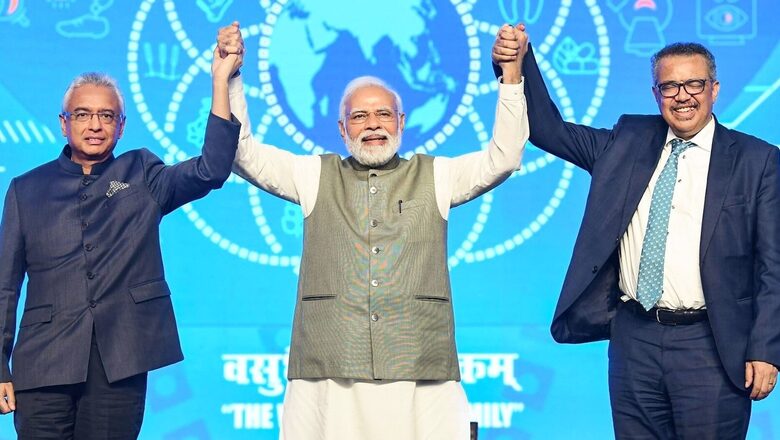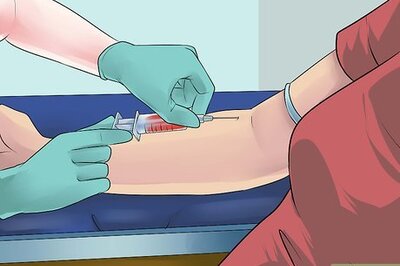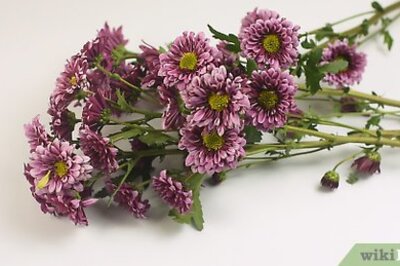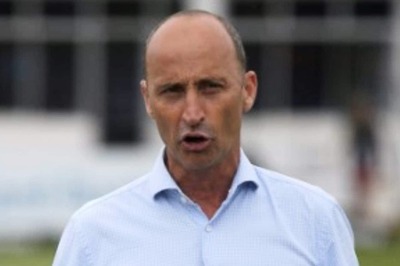
views
The National Sample Survey Office (NSSO) is set to begin a study to assess the public perception and use of traditional systems of medicines in India, said Rajesh Kotecha, secretary, ministry of Ayush, to News18.com.
‘Ayush’ is an acronym for traditional and complementary systems of medicine followed in India: namely Ayurveda, Yoga and Naturopathy, Unani, Siddha and Sowa-Rigpa, and Homoeopathy.
In a first, the government will collate data on the use of Ayush-based therapies in India and the results are likely to be released by the end of the year.
“NSSO will survey 16,416 households across the country. The survey results are likely to be available by the end of this year,” Kotecha said, adding that the findings will help the government assess the public interest in Ayush practices and further undertake policy interventions.
The move comes alongside the launch of the first-of-its-kind WHO Global Centre for Traditional Medicine (GCTM) in Gujarat’s Jamnagar. Prime Minister Narendra Modi, along with World Health Organization head Dr Tedros Ghebreyesus, officially launched the centre on April 21.
“This is the first-ever headquarters established by the WHO in any developing country. Till now, all other extensions of the UN agency are in developed nations. This is a landmark in India’s Ayush movement,” Kotecha said.
‘Strong undercurrent to adopt Ayush-based practices in India’
As per the secretary, India is witnessing a very “solid” undercurrent of adoption of herbal medicines and practices, especially after the outbreak of Covid-19.
According to the internal survey of the ministry via its app Ayush Sanjeevani, 90% of the participants used traditional practices and medicines during the pandemic, he said.
“According to this impact-assessment study, out of 1.37 crore respondents, 89.9% used the Ayush practices. This is huge,” he emphasised.
Not only in terms of adoption, but the market value of Ayush-based products has also soared by six times in the last seven years.
“In 2014, the study showed that the market size of Ayush-based products was around $3 billion or Rs 22,000 crore. A new study by policy research institute RIS shows that by 2020, the market had already grown to $18.1 billion or Rs 1,40,000 crore,” said Kotecha.
“Our Prime Minister Narendra Modi ji had said that we will see kranti (revolution) in ayurveda in the next 5 years… here it is, exactly in the five years.”
‘Criticism of Ayush helped us identify right direction’
The alternative medicines and therapies under the ambit of Ayush are often criticised by the experts of modern medicine as “pseudoscientific”.
“I am happy that people criticised and labelled Ayush as pseudoscientific. This helped the ministry in finding the right direction. Criticism is good…if you want to learn from them,” Kotecha said. “India is democratic and every one has the freedom of speech. This criticism has given us the direction to generate tangible evidence to prove the efficiency of ayurveda and other traditional medicines.”
Today, he said, several studies are going on with top institutes of India for evidence generation. “For instance, we are working with 26 departments of the All India Institute of Medical Sciences (AIIMS), New Delhi apart from a critical study at the Institute of Liver and Biliary Sciences (ILBS) to document the working and efficiency of top-end procedures of ayurveda,” said the secretary.
“More than 33,000 studies – indexed and peer-reviewed – have been published at Ayush’s research portal. Hundreds of our studies are showcased at WHO’s repository of studies on Covid-19.”
He added that the adoption of these practices, which will now be vetted by the WHO, will reduce the out-of-pocket expenditure of the common man and, also, it will end up reducing the burden on the exchequer by reducing the health budget.
‘Aim to double contribution of Ayush in medical tourism’
PM Modi, last week, announced that his government will introduce a special visa category to promote Ayush medical tourism with the theme ‘Heal in India’.
The ministry has already started working on the initiative. “The move will not only invite the tourists who come for spiritual retreats or yoga learning but we plan to open the visa for everyone who wants to learn or train in these practices from India,” Kotecha said. “Via Heal in India and Ayush Visa initiative, the target is to increase the contribution of Ayush in medical value tourism from the current 25% to 50%.”
Read all the Latest India News here




















Comments
0 comment